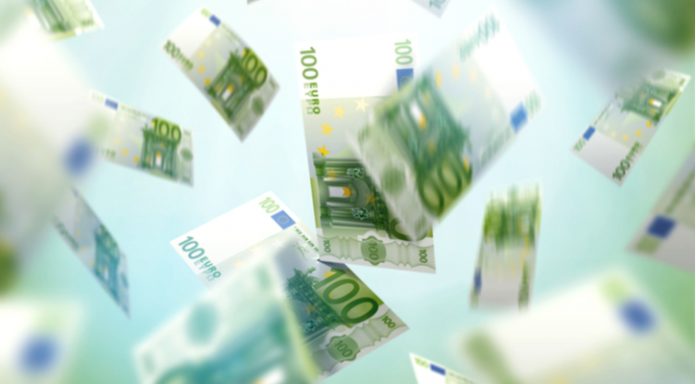A hattrick of better than forecast data this week lifted the pound versus the euro. The pound euro exchange rate hit a high of €1.1364 . However, the pound was unable to maintain its strength against a rallying euro, after hawkish comments from European Central Bank (ECB) members sent the exchange rate back towards €1.1330.
| What do these figures mean? |
|---|
|
When measuring the value of a pair of currencies, one set equals 1 unit and the other shows the current equivalent. As the market moves, the amount will vary from minute to minute. For example, it could be written: 1 GBP = 1.13990 EUR Here, £1 is equivalent to approximately €1.14. This specifically measures the pound’s worth against the euro. If the euro amount increases in this pairing, it’s positive for the pound. Or, if you were looking at it the other way around: 1 EUR = 0.87271 GBP In this example, €1 is equivalent to approximately £0.87. This measures the euro’s worth versus the British pound. If the sterling number gets larger, it’s good news for the euro. |
Activity in the UK service sector grew by more than analysts had been expecting in June. The UK service sector purchasing managers index (pmi) jumped to 55.1 in June, up from 54 in May. This was the biggest increase in activity in the sector since October 2017. Given that the service sector accounts for around 80% of economic activity in the UK, the strong increase in June points to economic growth picking up in the second quarter of the year. This is in line with predictions from the Bank of England, who have previously said that they expected stronger growth in the second quarter after a rather subdued first quarter.
The impressive service sector PMI (purchasing manager’s index) comes following better than expected manufacturing and construction pmi’s earlier in the week. Market participants are starting to grow optimistic that the central bank could consider that the UK economy is strong enough to handle a rate. As a result, the pound moved higher.
| Why do raised interest rates boost a currency’s value? |
|---|
| Interest rates are key to understanding exchange rate movements. Those who have large sums of money to invest want the highest return on their investments. Higher interest rate environments tend to offer higher yields. So, if the interest rate or at least the interest rate expectation of a country is relatively higher compared to another, then it attracts more foreign capital investment. Large corporations and investors need local currency to invest. More local currency used then boosts the demand of that currency, pushing the value higher. |
Today there is no high impacting data to be released. Instead, Brexit headlines will be back in focus as UK Cabinet ministers prepare to go to the Prime Ministers’ residence, the Chequers, at the weekend. There the group will attempt to agree on the post Brexit EU-UK relationship amid reports that UK Prime Minister can’t pull her party into line.
ECB To raise rates sooner?
The euro was broadly out of favour in early trade, as investors reacted poorly to pmi data out of the eurozone. The data confirmed growth in the eurozone, which could boost the chances of a rate rise by the European Central Bank. However, investors focused on declining business optimism as trade war fears intensify, rocking the outlook for the economy.
The euro jumped sharply higher in late trade after some hawkish comments from ECB members. A report said that some members of the ECB believe that the raising interest rates in late 2019, as planned, could be too late. This has encouraged market participants to believe a rate rise in the eurozone could come sooner. As a result, the euro rallied higher.
This publication is provided for general information purposes only and is not intended to cover every aspect of the topics with which it deals. It is not intended to amount to advice on which you should rely. You must obtain professional or specialist advice before taking, or refraining from, any action on the basis of the content in this publication. The information in this publication does not constitute legal, tax or other professional advice from TransferWise Inc., Currency Live or its affiliates. Prior results do not guarantee a similar outcome. We make no representations, warranties or guarantees, whether express or implied, that the content in the publication is accurate, complete or up to date. Consult our risk warning page for more details.
This article was initially published on TransferWise.com from the same author. The content at Currency Live is the sole opinion of the authors and in no way reflects the views of TransferWise Inc.





